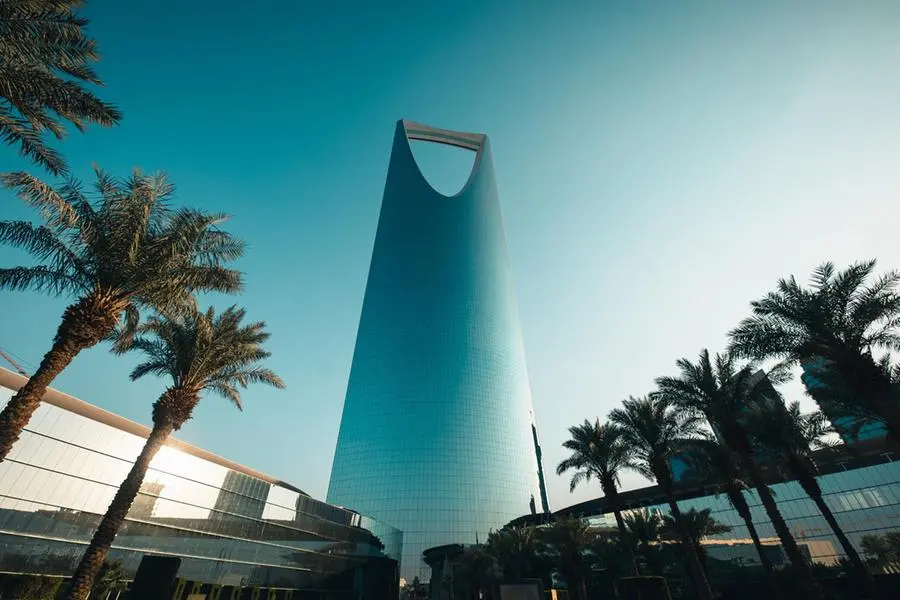PHOTO
In addition to planting 10 billion trees (covering 30 percent of total land area), the SGI aims to create vast protected zones, conserve marine life around the coasts and encourage alternative forms of agriculture. One key aspect of this sea change will be the contribution of technology to the greening of Saudi Arabia.
A leader in the realm of agritech is Dr. Nahid Sidki, chief technology officer with Research Products Development Company (RPDC), a PIF-owned not-for-profit resource for the commercialization of Saudi-based research and breakthrough technology.
With a 30-year background in Silicon Valley, where he was executive director at the Stanford Research Institute, Dr. Sidki is an authority on robotics and artificial intelligence (AI).
“The SGI is a great initiative that can produce a clean future, reduce carbon emissions and impact climate change,” Dr. Sidki told Arab News. “AI and robotics can play a major role in this, not only here in Saudi Arabia but across the Gulf region.”
But how exactly does hi-tech have anything to do with planting trees and growing crops? The answer lies partly in the sheer volume of what the SGI envisions.
“To plant 10 billion trees in a country like Saudi Arabia, one has to ask how they will be monitored and how their health will be sustained for decades to come. We cannot rely on just hoping for the best. We need to look to the ultimate goal and then work backwards in terms of the development and implementation of technology. It’s like a closed-loop ecosystem: planting, monitoring, irrigating and harvesting the trees.”
A primary consideration of the SGI is the use (and misuse) of water, a precious resource in the desert kingdom. Conventional irrigation methods often lead to significant wastage.
Smart dust
“AI can play a crucial role here via smart, efficient irrigation systems that utilize sensors and data analytics to monitor climate conditions and soil moisture,” Dr. Sidki said. “If every tree and every plant had sensors to monitor the condition of the soil surrounding the roots, this could determine exactly when it requires water and exactly what amount.”
Such AI-based solutions are already being put into practice, for example in the form of “smart dust,” nanoparticles that communicate with each other, enabling complex data collection and efficient decision-making in all aspects of agriculture.
“Land health monitoring is also very important,” said Dr. Sidki. “Throughout the life cycle of crops, drones can enable precision spraying and maximize seed pollination, and the same kind of sensor technology can be used for livestock monitoring, crop spraying and smart harvesting.”
These technologies, combined with local and global advances in genetic engineering, could soon turn the parched landscape of Saudi Arabia into an agricultural powerhouse with many verdant oases. Having said that, the greening of Saudi Arabia will require not just the conservation but also the production of potable water.
Some 60 percent of the Kingdom’s fresh water is currently supplied by energy-intensive seawater desalination plants reliant on polluting fossil fuels, an unsustainable solution in view of the SGI. But new desalination and water filtration techniques are emerging quickly, positioning the KSA as a hub for proprietary green technology.
In one RPDC-assisted project called the Red Sea Farm, a group of KAUST researchers have successfully grown tomatoes using a mix of 75 percent seawater and 25 percent freshwater, a scalable method that was recognized and lauded by the United Nations General Assembly in September.
“The idea is to develop smart technology to reduce the cost of desalination,” said Dr. Sidki. “Imagine if we could utilize solar energy for desalination. We would have unlimited fresh water from the ocean, which we are surrounded by in the KSA.”
The SGI represents one aspect of Saudi Arabia’s broader 4th Industrial Revolution (4IR), the fusion of AI, robotics, Internet of Things (IoT), genetic engineering and quantum computing, blurring the boundaries between the physical, digital and biological worlds. This is a highly collaborative movement involving numerous government bodies, PIF-owned companies (both commercial and not-for-profit), academic institutions, corporations, startups and SMEs.
“Robotics and AI will be playing a major role in every sector of society,” said Dr. Sidki. “And here in Saudi Arabia we have huge public and private funds to build capabilities.”
Innovation largely comes down to talent and education, and Dr. Sidki is again optimistic in this regard. “Saudi Arabia has a population of about 35 million, 70 percent of which is 25 or younger. And the percentage of those with a higher degree is very high compared to most other countries. In terms of PhD-holders the KSA probably ranks the highest in the region.”
Saudi Arabia is on the cusp of a major transformation that will involve a great deal of hard work and a lot of imagination.
“There’s an endless list of ways that new forms of technology can improve the quality of our daily life,” Dr. Sidki said. “People need to be very passionate about what they’re doing, and to be aware of the contributions they can make to their society, in order to have a huge impact. I think the combination of education and passion, and that impact, are the ingredients for a society to successfully achieve whatever it wants to do.”
Copyright: Arab News © 2021 All rights reserved. Provided by SyndiGate Media Inc. (Syndigate.info).





















